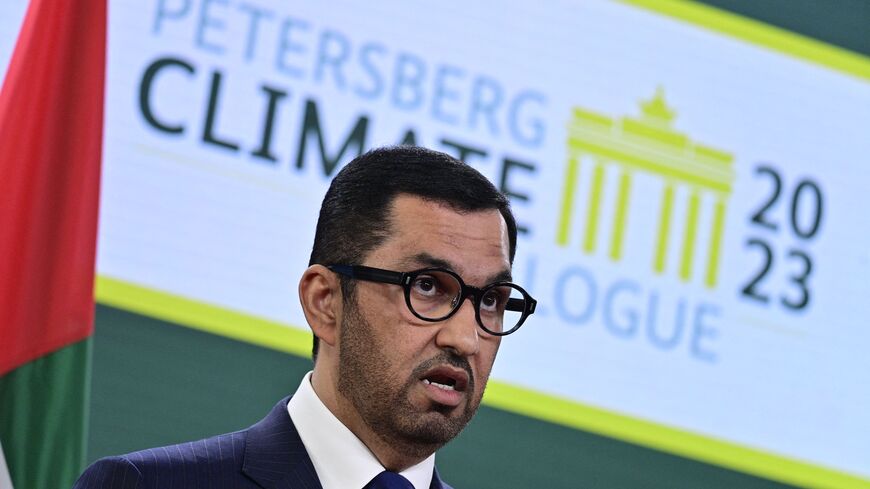The United Arab Emirates is unlikely to act on protests from European and US lawmakers to remove climate envoy and oil company CEO Sultan Ahmed Al Jaber as head of the COP28 UN climate conference expected to take place in Dubai in November.
On Tuesday, more than 130 members of the US Congress and European Parliament called for Jaber to step down as the president of the upcoming COP28 climate conference, which the Emirates is hosting at the end of the year.
As well as being the UAE’s minister of industry and technology and climate envoy, Jaber is CEO of the state-owned Abu Dhabi National Oil Company, one of the world’s biggest oil companies. He is also chairman of Masdar, an Emirati renewable energy and green hydrogen company.
In a joint letter addressed to the United Nations, European Commission President Ursula von der Leyen and US President Joe Biden, the politicians, mainly from Green and progressive parties, warn that fossil fuel companies are exerting “undue influence” over the climate talks.
“The decision to name as president of COP28 the chief executive of one of the world’s largest oil and gas companies — a company that has recently announced plans to add 7.6 billion barrels of oil to its production in the coming years, representing the fifth largest increase in the world — risks undermining the negotiations,” the letter read.
The politicians also demanded that the UN take new measures to limit corporate influence on future COPs, especially from the fossil fuel industry. The signatories of the letter included US Senators Bernie Sanders and Elizabeth Warren as well as Green Party members of the European Parliament.
Sanam Vakil, director of Chatham House’s Middle East and North Africa Programme, said that the move to oppose Jaber’s presidency is unlikely to go over well in the region.
“Gulf states have grown frustrated by Western finger-wagging. They have made it abundantly clear that they do not intend to compromise their national interests for Western ones,” Vakil told Al-Monitor.
“The UAE is looking to diversify its economy while leading the charge on climate change at COP28, sees no hypocrisy in selecting Al Jaber. In fact, they see his role as important to bridging their interests and creating energy company buy-in,” she added.
Tom Evans, a policy adviser at think tank E3G’s Climate Diplomacy and Geopolitics program, said that with nearly six months to go until COP28, the letter shows that the UAE has “not yet built sufficient trust that they can lead the negotiations in a fair manner and with a spirit of high ambition for climate outcomes, free from the inherent bias of their fossil fuel-led domestic economy.”
But he said that the UAE is unlikely to change the leadership ahead of the climate talks, not least because many governments are supportive of Jaber’s presidency.
Evans said that the UAE will need to change its approach to COP. “To build confidence in their presidency as well as build faith in the integrity of the negotiations, it will be paramount of the UAE to demonstrate real climate leadership in their diplomacy," he said.
“Leading a global push to phase out fossil fuels and scale up renewable energy, raising new financing for energy transitions in developing economies from its own enormous sovereign wealth and pioneering new finance for vulnerable countries afflicted by climate disaster such as through fossil fuel taxes. These are all ways that the UAE could credibly hit back at its critics, while pushing countries for high ambition outcomes at COP28.”
Many lawmakers have defended Jaber’s presidency. US climate envoy John Kerry has hailed him as a “terrific choice” for the presidency, while European Green Deal chief Frans Timmermans said that Jaber is “extremely well-placed to lead us into a successful COP.”
Al-Monitor has contacted the COP28 organizers for comment. The UN Climate Change Secretariat declined to comment on the letter when contacted by Al-Monitor.
It is not the first time Western politicians have protested the appointment of Jaber as COP28 head. Shortly after Jaber was appointed the role in January, 27 Democratic members of Congress sent a letter to Kerry demanding the UAE withdraw its pick of the oil executive.








